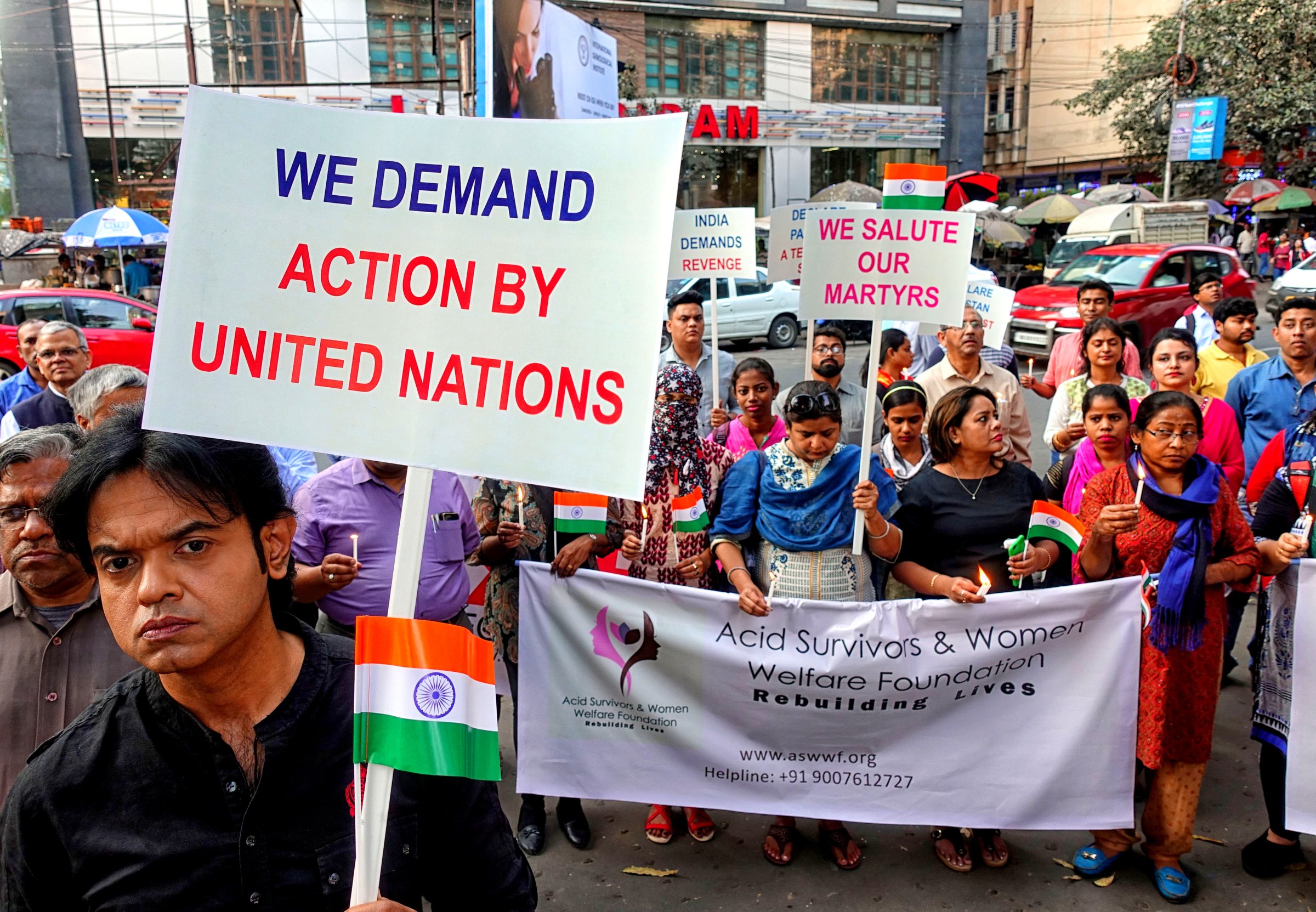
China’s move to block a fresh attempt by the United Nations Security Council to designate the chief of Jaish-e-Mohammed as a global terrorist has intensified pressure on the tense relationship between New Delhi and Beijing.
“We are disappointed by this outcome,” India’s foreign ministry said in a statement. “We will continue to pursue all available avenues to ensure that terrorist leaders who are involved in heinous attacks on our citizens are brought to justice.”
The Pakistan-based terrorist group claimed responsibility for the Feb. 14 suicide car bombing in Indian-administered Kashmir that killed 40 members of its security forces, bringing the volatile nations to the brink of a full-blown war. India launched airstrikes to destroy insurgent bases inside Pakistan, prompting Pakistan to retaliate, leading to an unprecedented clash between warplanes from both sides. An Indian pilot was captured by Pakistan and subsequently released.
While the possibility of a worsening military stand-off between the nuclear-armed neighbors reduced in recent weeks, India has continued to press for action against Masood Azhar, the group’s chief. Pakistan has been at pains to show it is taking action against against terrorist groups, closing religious schools and arresting dozens of people with links to terrorism, although observers have cast doubt on the effectiveness of Islamabad’s moves.
After an informal summit between Prime Minister Narendra Modi and his Chinese counterpart, Xi Jinping last April, it seemed relations had improved. The leaders committed to strengthening communication between their two militaries to avoid disputes along their contested Himalayan border and coordinating more closely to help boost prosperity in the region.
Relations tense
The attack in Kashmir put pressure on China — a close ally of Pakistan — to alter its position at the United Nations Security Council, where the government in Beijing has blocked India’s attempts to list Azhar as a designated terrorist.
To India’s dismay, Pakistan has been one of the largest beneficiaries of China’s “Belt and Road” initiative, which has seen about $60 billion committed for roads and power plants across the country, giving Beijing access to the Arabian Sea.
India did not name China in its official statement, saying the United Nations Security Council could not act on the proposal because a member placing the proposal on hold. The proposal was the council’s fourth attempt to blacklist Azhar and as a council member, China has veto powers.
More Must-Reads from TIME
- Donald Trump Is TIME's 2024 Person of the Year
- Why We Chose Trump as Person of the Year
- Is Intermittent Fasting Good or Bad for You?
- The 100 Must-Read Books of 2024
- The 20 Best Christmas TV Episodes
- Column: If Optimism Feels Ridiculous Now, Try Hope
- The Future of Climate Action Is Trade Policy
- Merle Bombardieri Is Helping People Make the Baby Decision
Contact us at letters@time.com